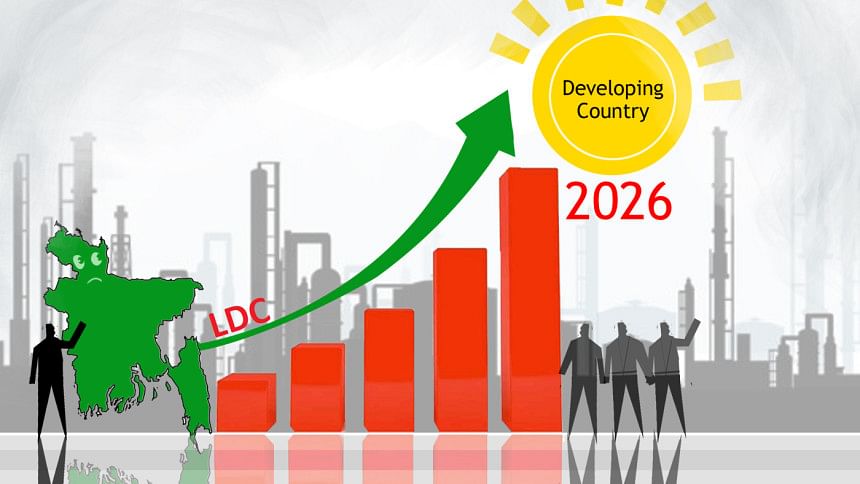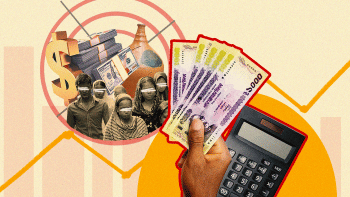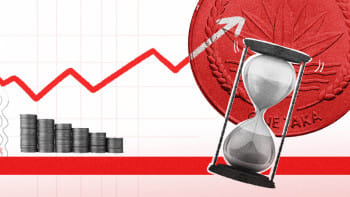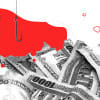Changing trade policy directions is imperative now

The bell tolls for Bangladesh. November 24, 2026 is a historic milestone and could be a day of reckoning for the nation. Almost 50 years after it was classified by the UN Committee for Development Policy (CDP) as a Least Developed Country (LDC), with the associated international support measures (ISMs) prescribed in its favour, Bangladesh will be graduating into a "developing" country under UN classification. ISMs will soon be phased out with consequent preference erosion in hitherto zero-tariff accessible markets. Tariff exemptions will soon be replaced with high tariffs that are typically imposed by most developed economies on textile products. That would mean stiffer competition for our RMG and some other exports.
No doubt, there are challenging times ahead. But resilience is instilled in our economic firmament. So economic challenges will have to be met with appropriate policy instruments that are available. The forthcoming FY2024-25 national budget must show that we mean business. Wherever we look, whether it is the tax system, banking governance or trade policy stance, the economy is crying for reforms—deep and structural, rather than cosmetic.
First, macroeconomic stability needs to be restored for the economy to return to its long-run path of stable growth. While policies for restoring internal balance is critical, i.e. moderating inflation through monetary and fiscal management, restoring sustainable external balance via exchange rate management and stabilisation of foreign exchange reserves with strong export and robust remittance inflows is just as crucial, without which macroeconomic stability could be short-lived and ephemeral.
Just as augmented revenue mobilisation in the current state of public finances warrants structural reforms of the tax regime, so too does the resurgence of the export sector, which needs to see another round of trade-oriented reforms to put our export performance back on track.
We could take a leaf out of our own book. There was a severe balance-of-payment crisis in 1990 that made fundamental trade policy reforms a fait accompli. But it was the trigger that unleashed the forces of rapid economic growth. It was the radical change of direction in trade policy (complemented by market orientation and deregulation) during much of the 1990s that changed the course of Bangladesh's economic history. It is now possible to make the assessment that after the first two decades of prevarication in trade policy, Bangladesh was able to change direction and get it right—at least partially so. Evidence shows that the country massively reaped the benefits of those changes in the subsequent decades, prompting a leading development economist to describe Bangladesh as a "development paragon." In my view, switching gears in trade policy in the 1990s from an inward-looking, import-substituting approach to an outward-looking, export-oriented one was the game changer.
Compared to the previous 20 years, the trade policy changes undertaken in the 1990s could be termed radical indeed, and included (a) sharp reduction and rationalisation of tariffs; (b) significant import liberalisation through removal of bans, quantitative restrictions (QRs), and import licensing (end of licence raj); (c) move from fixed to flexible exchange rates; and (d) limited convertibility of the current account. Overall, trade liberalisation during the 1990s was deep and transformative. In 2001, a seminal World Bank study on the impact of trade liberalisation on growth and poverty, titled Trade, Growth and Poverty, listed Bangladesh among the "globalisers" of the developing world, confirming through empirical evidence that these globalisers were experiencing rapid growth in incomes and declines in poverty.
Our trade policy regime suffers from at least two fundamental constraints. First, there is trade policy dualism, which essentially frames one policy for RMG exports with notable success, and another policy for the rest with little success to speak of. Second, there is persistence of anti-export bias of high tariff protection that simply makes sales in the domestic market far more profitable than exporting activity.
One of the major disappointments on the economic policy front has been the lack of sustained progress in structural reforms in macroeconomic and trade policy areas. As a consequence, the external shocks of 2022 that rocked the economy have disrupted two decades of macroeconomic stability that was assiduously maintained to give the needed boost to economic growth and poverty reduction. The GDP growth averaged five to seven percent during this period, while the poverty rate fell from 57 percent in 1990 to 18.7 percent in 2022, prompting the World Bank to call Bangladesh "an inspiring story of reducing poverty"—2.5 crore lifted out of poverty in 25 years.
With the FY2024-25 budget imminent, it is critical that policymakers reflect on the key challenges the economy faces on several fronts. As in the 1990s, the current situation warrants a radical approach to addressing some of the most critical issues of the day for restoring internal and external macroeconomic balance. While there has been a profusion of "what to do" messages from all and sundry, there is still a conspicuous void in the matter of trade policy direction to restore external balance, i.e. stabilise the balance of payments and build forex reserves. Here, while moving to a regime of exchange rate flexibility makes a good starting point, building forex reserves of the kind we have been used to will be the challenge of the decade.
Our trade policy regime suffers from at least two fundamental constraints. First, there is trade policy dualism, which essentially frames one policy for RMG exports with notable success, and another policy for the rest with little success to speak of. Second, there is persistence of anti-export bias of high tariff protection that simply makes sales in the domestic market far more profitable than exporting activity. Under this dualistic regime, we may continue to count on robust RMG export performance with little traction on the export of non-RMG products, no matter how much we improve logistics and trade facilitation processes. PRI research has revealed that numerous non-RMG exports have a high to moderate degree of competitiveness when matched with competing exporters globally, proving conclusively that competitiveness is not the stumbling block. It is logical to expect that if we have strong competitiveness in a labour-intensive product like RMG, there must be numerous other labour-intensive products like footwear, jute, cotton, specialised textiles, plastics, electronics, and light engineering that beckon for policy attention. The problem, now widely recognised, is the anti-export bias of the protection regime.
Mind you, the World Trade Organization (WTO), in its last review, noted that tariffs and para-tariff are the main instruments of Bangladesh's trade policy. That is where change must come, and now is the time—in budget or off. Persisting with a strategy of high output tariffs with input tariffs trending downwards is the prescription for taking the wind out of the sails of future export performance. Both must be rationalised together.
To build forex reserves, if the economy must resume strong export (and remittance) performance with a diversified basket of export products, it is imperative—and NOW—that we engage in another round of radical trade policy reforms and tariff rationalisation scheme, to stand shoulder to shoulder with other high-performing export economies like Vietnam, China, and Malaysia.
Our past export performance says we can. We already have a National Tariff Policy 2023 that incorporates many of the critical measures and policy directions that our trade policy needs in order to fuel both exports and their diversification. Adopting some of the measures and policies from the NTP 2023 could bring change to the trade policy firmament, moving it in the right direction. These will also facilitate our FTA negotiations, which are essentially stuck in the quagmire of our tariff structure. Will the FY2024-25 budget lay the groundwork for change?
Bangladesh's export potential has not been exhausted yet. A bright future of export success awaits us if we change trade policy direction now. A crisis always brings opportunity. This nation of over 17 crore should not be made to regret missing it this time.
Dr Zaidi Sattar is chairman of Policy Research Institute of Bangladesh (PRI).

 For all latest news, follow The Daily Star's Google News channel.
For all latest news, follow The Daily Star's Google News channel. 










Comments